|
December 17, 2021 - No. 121
Quebec
Health Care Workers Demand Real Solutions
and an End to
Ministerial Decrees
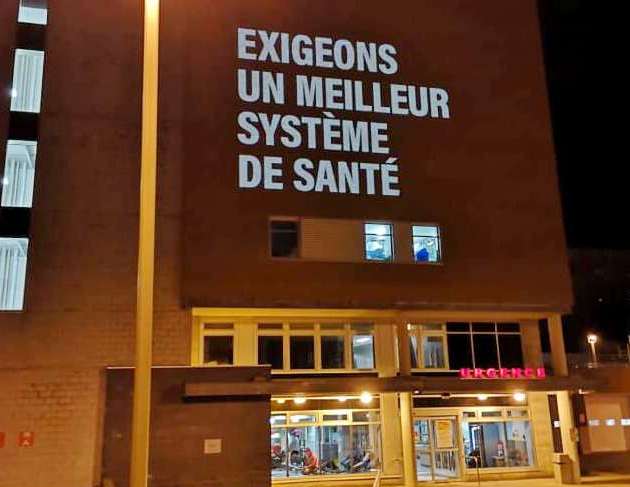 
United States
• Health Care Workers
Demand Government Provide Federal Standards
for Safe Conditions
Worldwide
• Millions Demand
Wealthy Countries Stop Blocking Patent Waivers
for
COVID Vaccines
• Note to Our Readers
Quebec
Quebec health care unions are speaking out
against the changes
announced by Health Minister Dubé to the
ministerial order
granting temporary bonuses to health care
professionals, saying that
they "miss the mark." A press release published
on November 26 on the
website of the Service Employees Union of Quebec
(SQEES) on behalf of
health care unions in Quebec, says that "these
changes show that the
government is not hearing our message that it
must put an end to
management by decree and implement the solutions
put forward by union
organizations that are in tune with the needs of
the network. In
addition, they reiterate that they will never
negotiate a ministerial
decree."
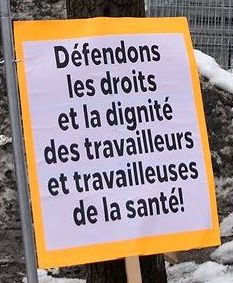 The Ministerial
Order was issued on October 16, 2021 and
provides for bonuses offered to workers who sign
an agreement to work full-time for a year, an
order which the government claims would address
the staffing shortage crisis in the province.
According to the order, the bonus is conditional
on an individual accepting working conditions
that health care professionals are opposed to
and that violate provisions of recently
negotiated collective agreements. For example,
to get the bonus, a worker has to agree to being
assigned to work outside of their regular work
assignment. In the original order, a leave
without pay or unpaid absence could result in
loss of eligibility for the bonus or a
requirement to repay a bonus already received.
With the changes announced on November 26,
various exclusionary and punitive measures are
maintained, including the requirement that a
worker unable to work full time due to an injury
on the job would have to repay the bonus, a
violation of the labour law. The Ministerial
Order was issued on October 16, 2021 and
provides for bonuses offered to workers who sign
an agreement to work full-time for a year, an
order which the government claims would address
the staffing shortage crisis in the province.
According to the order, the bonus is conditional
on an individual accepting working conditions
that health care professionals are opposed to
and that violate provisions of recently
negotiated collective agreements. For example,
to get the bonus, a worker has to agree to being
assigned to work outside of their regular work
assignment. In the original order, a leave
without pay or unpaid absence could result in
loss of eligibility for the bonus or a
requirement to repay a bonus already received.
With the changes announced on November 26,
various exclusionary and punitive measures are
maintained, including the requirement that a
worker unable to work full time due to an injury
on the job would have to repay the bonus, a
violation of the labour law.
The unions point out that the staffing shortage
in health care is a
complex issue that requires more than temporary
measures and invites
the government to seriously consider the
proposed solutions that the
unions have been putting forward for years,
including measures already
contained in the collective agreement. They also
point out that
weeks after the ministerial order was made there
is still a failure to
attract and retain nursing and cardiorespiratory
care workers to meet
the urgent needs on the ground, proving that
Minister Dubé is on
the wrong track.
The unions have asked the government to meet
with them to discuss lasting solutions that are
based on recognizing the essential work their
members do and they have put forward 15
proposals in response to the problems that the
ministerial decree has created.
"By refusing our outstretched hand,” the
statement says, “the government is missing a
great opportunity to respond to the concerns of
health care professionals. His [Dubé's]
ministerial decree does not resolve the
situation because to do so, one must hear the
solutions of the people who are on the ground.
With its announcement today, the government is
showing that it is more interested in managing
everything on its own than in improving the
situation. Its anti-union attitude has serious
consequences, as it has the effect of depriving
the population of its right to essential care
and services in the healthcare network. Service
breakdowns are still common in the network."
The unions repeated their desire and
availability to discuss long
term solutions to resolve the crisis of the
shortage of personnel and
professional burnout, making it clear that the
decree of working
conditions and incentives that bypass the unions
as representatives of
the workers is unacceptable, that negotiations
on working conditions
must be
held with the unions and be based on the labour
laws and existing
collective agreement. With regard to the
incentive program they have
put forward various proposals to eliminate
discriminatory and punitive
conditions.
For the full press release click
here.

United States
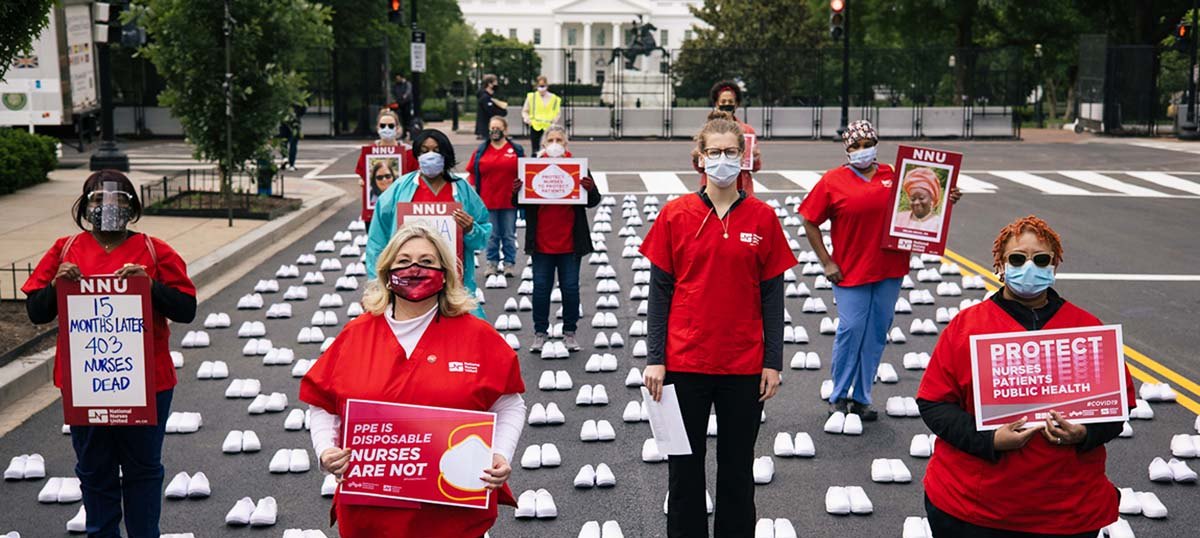
Health care workers in the United States have continued to demand
that federal standards
be developed to provide safe working conditions
for all, workers,
patients and community members alike. As a
result of determined
struggle, in June 2021, some COVID-19
protections for nurses and other
health care workers across the country were
provided by the U.S.
Occupational Safety and Health Administration
(OSHA). These were far
from sufficient but did include the most basic
safety protocols, like
masks -- something that the big health care
monopolies should have
adopted long ago. Full personal protective
equipment (PPE), free and
regular testing, staffing ratios, paid sick
days, all remain demands in
many hospitals and nursing homes.
OSHA provided a minimal federal standard
through an Emergency
Temporary Standard (ETS). This is about to
expire. Spearheaded by
National Nurses United (NNU), one of the largest
unions of nurses
nationwide, the demand is for OSHA to expand the
standard and make it
permanent.
As NNU brings out: "Nurses have been on the
front lines of this
pandemic from the start, fighting for the lives
of millions of people.
Being forced to wear the same N95 respirator for
a month in a war
against an aerosol transmissible disease -- in
one of the wealthiest
industries in one of the wealthiest nations --
is not just insulting,
it's an
injury, and it's incredibly dangerous for
nurses, other health care
workers, and patients." They also reflect the
social responsibility
they have demonstrated throughout the pandemic
by demanding safe
conditions and basing them on the workers' own
experience:
"The standards we have developed from our
experience with COVID must
form the foundation for a separate, broader
standard to prepare for
future pandemics and to protect all workers from
workplace exposure to
aerosol transmissible diseases. To save as many
lives as possible and
to keep our communities safe," NNU calls on OSHA
to
make its COVID ETS permanent and immediately
create a new standard for
infectious diseases going forward that provides
safe working conditions
for all.
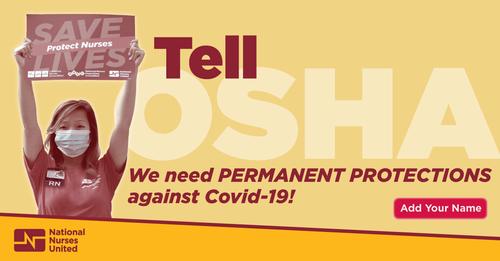

Worldwide
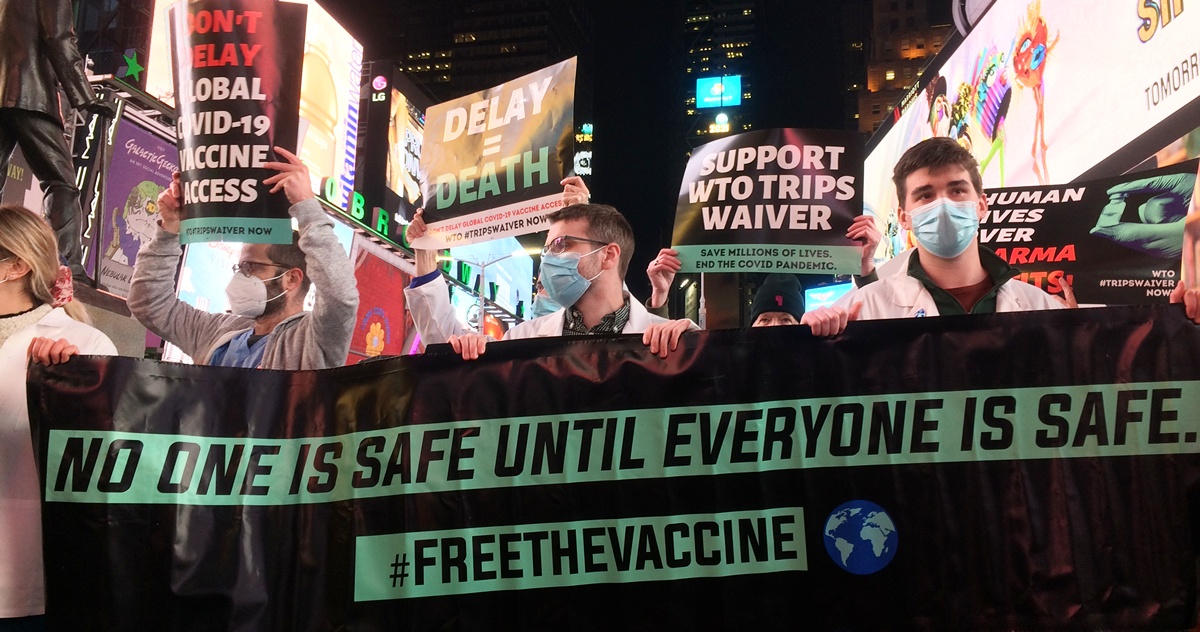
New York City, November 30, 2021
More than 2.5 million nurses from 28 countries
worldwide filed a
complaint with the United Nations (UN) November
29, calling on the UN
to investigate rich countries blocking a
proposed patent waiver for
coronavirus vaccines. The demand came as new
COVID variants are
emerging and the pandemic persists worldwide.
The campaign is
coordinated by Global Nurses United (GNU), with
Canadian and U.S.
unions participating.
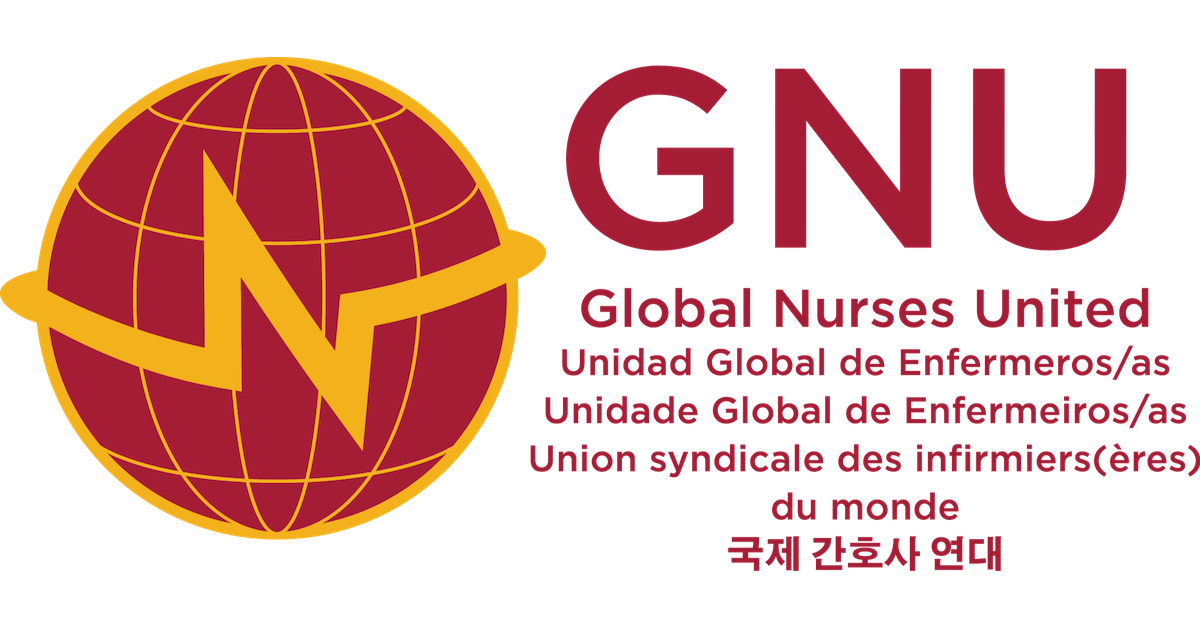 In a detailed
letter addressed to Dr. Tlaleng Mofokeng, the UN
Special Rapporteur on Physical and Mental
Health, dozens of nursing
unions said "the end of this pandemic is nowhere
in sight" as "COVID-19
cases continue to soar in numerous parts of the
world, while
pharmaceutical companies and governments have
failed to ensure that
critical treatments and vaccines are
distributed." Vaccines are instead
being hoarded by rich countries, like the U.S.
and European countries,
and ability to produce the vaccines in poorer
countries is blocked by
patents -- that is private ownership of what is
clearly a public
necessity. In a detailed
letter addressed to Dr. Tlaleng Mofokeng, the UN
Special Rapporteur on Physical and Mental
Health, dozens of nursing
unions said "the end of this pandemic is nowhere
in sight" as "COVID-19
cases continue to soar in numerous parts of the
world, while
pharmaceutical companies and governments have
failed to ensure that
critical treatments and vaccines are
distributed." Vaccines are instead
being hoarded by rich countries, like the U.S.
and European countries,
and ability to produce the vaccines in poorer
countries is blocked by
patents -- that is private ownership of what is
clearly a public
necessity.
The letter continues, "This unequal
distribution of vaccines is not
only grossly unjust for the people in low- and
moderate-income
countries who remain at high risk for
contracting and further
transmitting COVID-19, it also provides for the
possibility for the
development of new variants, some of which may
be resistant to the
current available
vaccines," the filing reads. "The development
and spread of new
variants pose a dire risk to all people around
the world."
The complaint specifically targets the European
Union, Britain,
Switzerland, Norway, and Singapore, as key
countries standing in the
way of a patent waiver.
The nurses state that a small group of rich
nations is "endangering
millions of lives around the world." They say,
"This is a clear
violation of our right to health -- of nurses,
caregivers, and
patients." In addition to the letter they have
circulated a petition
and are also going to court. To the UN they
said, "We demand an urgent
investigation into
the obstruction of the waiver by these COVID-19
criminals."
The letter brings out that the richest
countries have secured
upwards of 7 billion vaccine doses, while
financially poorer countries
have only been able to secure about 300 million
doses. This has created
what public health advocates around the world
confirm is "vaccine
apartheid." The apartheid extends to health care
workers as well, with
less
than one in 10 healthcare workers being fully
vaccinated in the African
and Western Pacific regions, for example.
"Nurses and other healthcare workers have been
on the frontlines of
the COVID-19 pandemic response, and we have
witnessed the staggering
numbers of deaths and the immense suffering
caused by political
inaction," the letter continues. They bring out
that the continued
refusal by governments to waive patent
restrictions "is resulting in
the
violation of human rights of peoples across the
world," and that "these
countries have violated our rights and the
rights of our patients --
and caused the loss of countless lives -- of
nurses and other
caregivers and those we have cared for."
The
nurses call for "a new international health
order" to eliminate the
vaccine inequality and to provide for
"collective benefit, based on the
principles of sovereignty, solidarity, and the
universal right to life."

Geneva, Switzerland, November 30, 2021.

With this issue, Workers' Forum ceases
regular publication until mid-January 2022. The break is to
give us, hardworking editorial and technical staff, time off and
an opportunity to prepare for 2022.
Workers' Forum will nonetheless be published on
request as required by the needs of the workers' movement.
Please continue to send your news, press releases, views and
photographs which are very helpful in keeping our readers from
coast to coast to coast informed and encouraging them in their
own endeavors. We are one workers' movement with one aim,
informed by rich experience in tackling the problems we all
face, nationally, regionally, locally and on the grand global
scale as well.
Sharing experiences is helpful to everyone facing similar
problems. Importantly, it also helps smash the silence
imposed on our struggles to isolate us, discourage us and make
us feel we are insignificant and disposable. We will never
accept this and pledge to step up our efforts to strengthen
this work in the New Year.
Help us by getting new subscribers, distributing the paper to
your co-workers, sending whatever funds you can afford and your photos and news.[1] Thanks to the links established with
working people all over the country, we are a de facto news
agency which gives accurate and timely information. We hope to
strengthen this with timely audio reporting next year. With this, we thank you for your support in 2021 and wish
you
and your families a safe holiday filled with social
solidarity and care for one another.
Season's Greetings!
Editorial and Technical Staff Note1.
To contribute make out a cheque or money order payable to
“MLPC” and send it to P.O. Box 666, Station C, Montreal, QC
H2L 4L5. For more information or to make a contribution directly
using paypal click here.

(To access articles
individually click on the black headline.)
PDF
PREVIOUS
ISSUES | HOME
Website: www.cpcml.ca
Email: office@cpcml.ca
|

